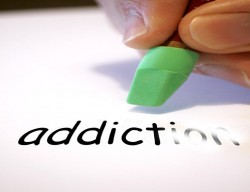 The definition of drug addiction is the physiological and psychological dependency on a substance. This can be described by a physiological tolerance to a substance and the presence of withdrawal symptoms in the absence of the drug. Psychologically, it is the continued use of the substance despite the negative consequences caused by its use. There are several types of care that focus on one or both of these aspects of addiction.
The definition of drug addiction is the physiological and psychological dependency on a substance. This can be described by a physiological tolerance to a substance and the presence of withdrawal symptoms in the absence of the drug. Psychologically, it is the continued use of the substance despite the negative consequences caused by its use. There are several types of care that focus on one or both of these aspects of addiction.
Psychotherapy is widely used in treatment centers. Group and individual sessions can be utilized when treating a patient who is addicted to drugs. The psycho-therapeutic community model is used to treat patients as a group. Said group not only becomes the target of the therapy, but a therapeutic tool as well. Groups are often formed with members at different stages of recovery in order to create an environment where members can learn from one another. Members of the group are expected to model certain behavior and hold each other accountable. New members often resist the rules and behavior expectations. It is the group’s member’s responsibility to hold their peers accountable and follow the rules, a form of reverse peer pressure.
Physiological dependency can be harder to treat. Treatment of a person suffering from withdrawal symptoms is extremely difficult. Withdrawals from heroin and Oxycontin include vomiting, the shakes, fever and delusions. Almost no therapy can be given while a person in is this stage of detox. Detoxification of this degree needs to be monitored by a Registered Nurse to ensure safety. Medications such as Suboxone can be prescribed in order to ease the symptoms of withdrawal. Irritability and excesses sleep are typical symptoms of withdrawal for marijuana, amphetamines and speed.
Studies have found that the most successful drug addiction treatments are those that focus on both the physiological and psychological components of drug addiction. Some treatment plans include family therapy as well.
